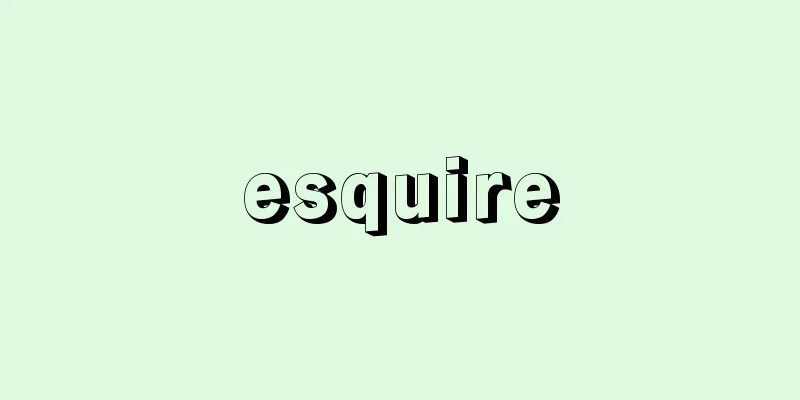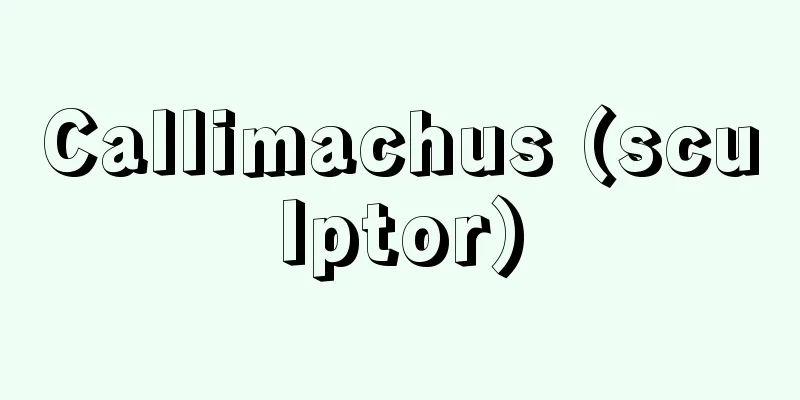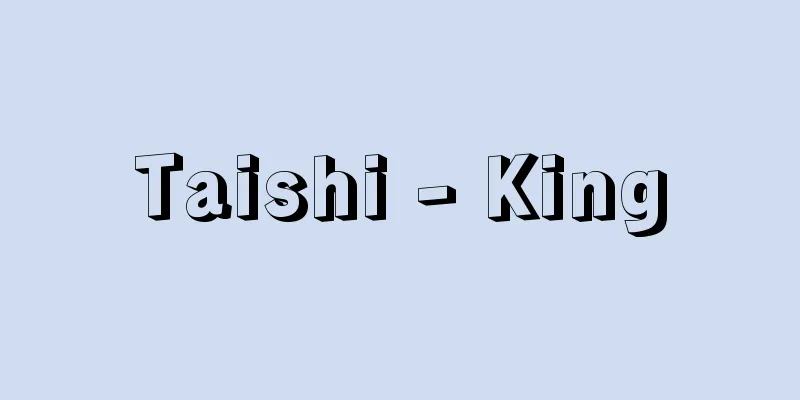Prerogative - Experience

|
This refers to the powers that belong to the Emperor under the Meiji Constitution. There are three types of powers: the supreme power of imperial affairs (Imperial Household) as stipulated by the Imperial House Law and Imperial Household Ordinance, the supreme power of supreme command under the Constitution, the supreme power of state affairs, and the supreme power of rituals under customary law. The supreme power of imperial affairs became clearly distinguished from the other powers after the Cabinet System was established in 1885 (Meiji 18) and the Imperial Household Ministry was placed outside the Cabinet. It is the supreme power regarding the affairs of the Imperial Household, and is exercised exclusively by the advisory power of the Minister of the Imperial Household. The supreme power of supreme command is the supreme power regarding the affairs of the supreme command (military order affairs), and is also called the supreme power of military order or the supreme power of the appointee. Under customary law that existed before the Constitution, it was strictly distinguished from the supreme power of state affairs, and in principle, the Emperor himself exercised it. The provision that "The Emperor shall command the Army and Navy" (Article 11 of the Constitution of the Empire of Japan) confirmed this. When Imperial sanction was sought for the affairs of supreme command, it was submitted directly by the Chief of Staff, the Chief of the Naval General Staff, or the Minister of the Army or Navy, without going through the Prime Minister. This was called a "messenger petition," and the principle that the Minister of State's advice did not extend to such matters was called "independence of supreme command." The prerogative of state affairs broadly refers to prerogatives related to state affairs, which were exercised with the advice of the Minister of State. It includes prerogatives related to legislation, the organization and opening and closing of the Diet, the system and appointments of officials, the organization of the military, diplomacy, martial law, the awarding of honors, and amnesty, as well as emergency prerogatives. Among the prerogatives related to legislation were independent orders issued independently of law to maintain public peace and order and promote the happiness of the subjects (Article 9 of the Constitution of the same country), and emergency orders (Imperial Ordinances) issued in place of law in emergency cases (Article 8 of the Constitution of the same country), which did not require the intervention of the Diet. Therefore, in relation to the Diet, it served to strengthen the power of the Emperor (the government) and weaken the position of the Diet. [Masaaki Ikeda] Emergency powersEmergency powers refer to the authority to suspend all or part of the rights of subjects in times of war or national emergency (Article 31 of the Constitution), but their content is unclear and they have never actually been exercised. However, the existence of this system shows that the rights of the people are merely those recognized at the will of the Emperor (the government). [Masaaki Ikeda] Source: Shogakukan Encyclopedia Nipponica About Encyclopedia Nipponica Information | Legend |
|
明治憲法下において天皇に属する権能をいう。皇室典範、皇室令が定める宮務(皇室)大権、憲法上の統帥(とうすい)大権、国務大権、慣習法上の祭祀(さいし)大権の別がある。宮務大権は、1885年(明治18)内閣制度が成立し、宮内省が内閣の外に置かれるようになってから、他の大権と明確に区別されるようになった。皇室の事務に関する大権で、もっぱら宮内大臣の輔弼(ほひつ)によって行われる。統帥大権とは統帥の事務(軍令事務)に関する大権で、軍令大権、帷幄(いあく)大権などともよばれる。憲法以前からの慣習法により国務大権とは厳格に区別されて、天皇自らが行うのを原則とした。「天皇ハ陸海軍ヲ統帥ス」(大日本帝国憲法11条)と規定したのは、そのことを確認したものである。統帥の事務に関し勅許を仰ぐ場合は、内閣総理大臣を経ずに、直接、参謀総長、軍令部総長または陸・海軍大臣から奏上された。これを「帷幄上奏(いあくじょうそう)」といい、また国務大臣の輔弼が及ばないという原則を「統帥権の独立」といった。国務大権は広く国務に関する大権をいい、国務大臣の輔弼によって行われた。立法、議会の組織と開閉、官制と任官、軍の編成、外交、戒厳、栄典授与、恩赦に関する大権のほか非常大権などが含まれる。立法に関する大権事項のなかには、公共の安寧秩序を保持し臣民の幸福を増進するために法律から独立して発せられる独立命令(同憲法9条)、緊急の場合に法律にかわって発せられる緊急命令(勅令)があり(同憲法8条)、議会の干与を必要としなかった。そのため議会との関係において、天皇(政府)の権能を強くし議会の地位を弱めるのに役だった。 [池田政章] 非常大権非常大権とは、戦時または国家事変の際に臣民の権利の全部または一部を停止する権能をいうが(同憲法31条)、その内容は明確ではなく、実際には一度も発動されなかった。しかし、この制度の存在は、国民の権利も天皇(政府)の意思の下に認められたものにすぎないことを示している。 [池田政章] 出典 小学館 日本大百科全書(ニッポニカ)日本大百科全書(ニッポニカ)について 情報 | 凡例 |
>>: Pouch animal - Aschelminthes
Recommend
SK
…Sweden, Denmark, and Norway joint airline. The a...
Zingiberol
…When heated to 60°C in acetic acid containing a ...
Chiffon (English spelling)
A name for a fabric. A word derived from the Frenc...
"Kyōgoku Kanpakuki" - Kyogoku Kanpakuki
…He married the daughter of Minamoto no Shifusa o...
Picrotoxin
C 30 H 34 O 13 . Also called coccalin. A bitter, t...
Nemesia maculata (English spelling)
… [Eiichi Asayama]. … *Some of the terminology th...
Kuala Terengganu (English spelling)
A city at the mouth of the Terengganu River on the...
Thorðarson, T. - Thor arsonT
...From the end of the 13th century onwards, many...
Byte (English) single point tool; cutting tool
A general term for cutting tools with a cutting ed...
Sisyrinchium graminoides (English name) Sisyrinchiumgraminoides
…[Tetsuichi Yahara]. … *Some of the terminology t...
Yu-Tong
A Chinese magazine on geography and ethnology. Fir...
Leon, JPde (English spelling) LeonJPde
… [history] The island was once called Boriquén o...
Sylvano Bussotti
Italian composer. After studying violin, composit...
Ezo salamander - Ezo salamander
An animal of the family Salamanderidae in the ord...
Kukuriya - Kukuriya
…It lies about 100 km southwest of Nicosia, on th...









